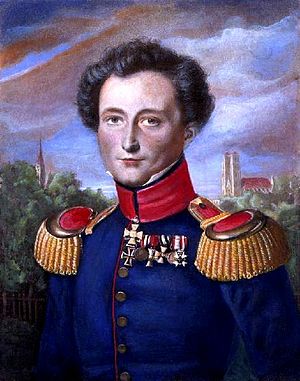As Zachary Keck has argued, Stephen Walt is not Obama’s George Kennan. The biggest problem with the claim is that George Kennan was no one’s George Kennan, or at least not in the terms popularly understood. Kennan certainly contributed to the concept of containment, but his vision of how to contain the Soviet Union stood in contrast not only with other major proponents (Paul Nitze, for example), but also with the eventual policies pursued by the United States. Kennan wasn’t shy about pointing out how containment-in-action diverged from what he had envisioned in the Long Telegram.
More broadly, the argument mistakes the situational for the dispositional. Walt is associated with Obama’s foreign policy because the former has counseled restraint with respect to America’s role in world affairs. How “restrained” is Barack Obama? Certainly more so than his immediate predecessor, and possibly more so than any President since Jimmy Carter. It is difficult to imagine Obama pursuing the Kosovo War or the first Gulf War with the same vigor at Bill Clinton and George H.W. Bush. Obama surged in Afghanistan, but only with the explicit purpose of leaving within a few years. The United States famously led the Libyan operation “from behind,” and Obama displayed no enthusiasm whatsoever for intervention in Syria, even after becoming bound by his own rhetoric.
Does this mean that Obama is indebted to any particular theorists of restraint or “offshore balancing?” Not likely. There are many strategic theorists who would have counseled such restraint. Stephen Walt is one of them, but other “offshore balancers” include Christopher Layne, Eugene Gholz, and the bulk of the Cato Institute. Numerous leftish commentators have also counseled restraint, especially in the wake of the Bush administration. But indeed, compared to George W. Bush, we could categorize nearly every strategic thinker in the United States as advising restraint. In some situations, even the most hawkish of Presidents can look restrained. As Walt himself has argued, Obama is merely responding to situational constraints.
This is not to say that Dr. Walt’s policy advice is not helpful. Similarly, Kennan’s vision of Soviet behavior informed, rather than dictated, the attitudes of policymakers in the 1950s. Rather, it remains difficult to draw clear lines between strategic thinkers and actual policy, especially in the short term. No theory of foreign policy can long survive contact with the messy mechanisms of diplomatic statecraft. As Dr. Holmes and Toshi Yoshihara have pointed out, Chinese maritime strategy is sufficiently plastic to blend Maoist and Mahanian theory. Even when Barack Obama hires a theorist as his Ambassador to the UN or cites a strategist as an influence, appointments and rhetoric may result from concerns over domestic positioning rather than from an affinity for any particular grand strategy. Unless Obama comes out in favor of abolishing the U.S. Air Force, it’s difficult to suss out the influence that any thinker has on his strategic orientation.

































